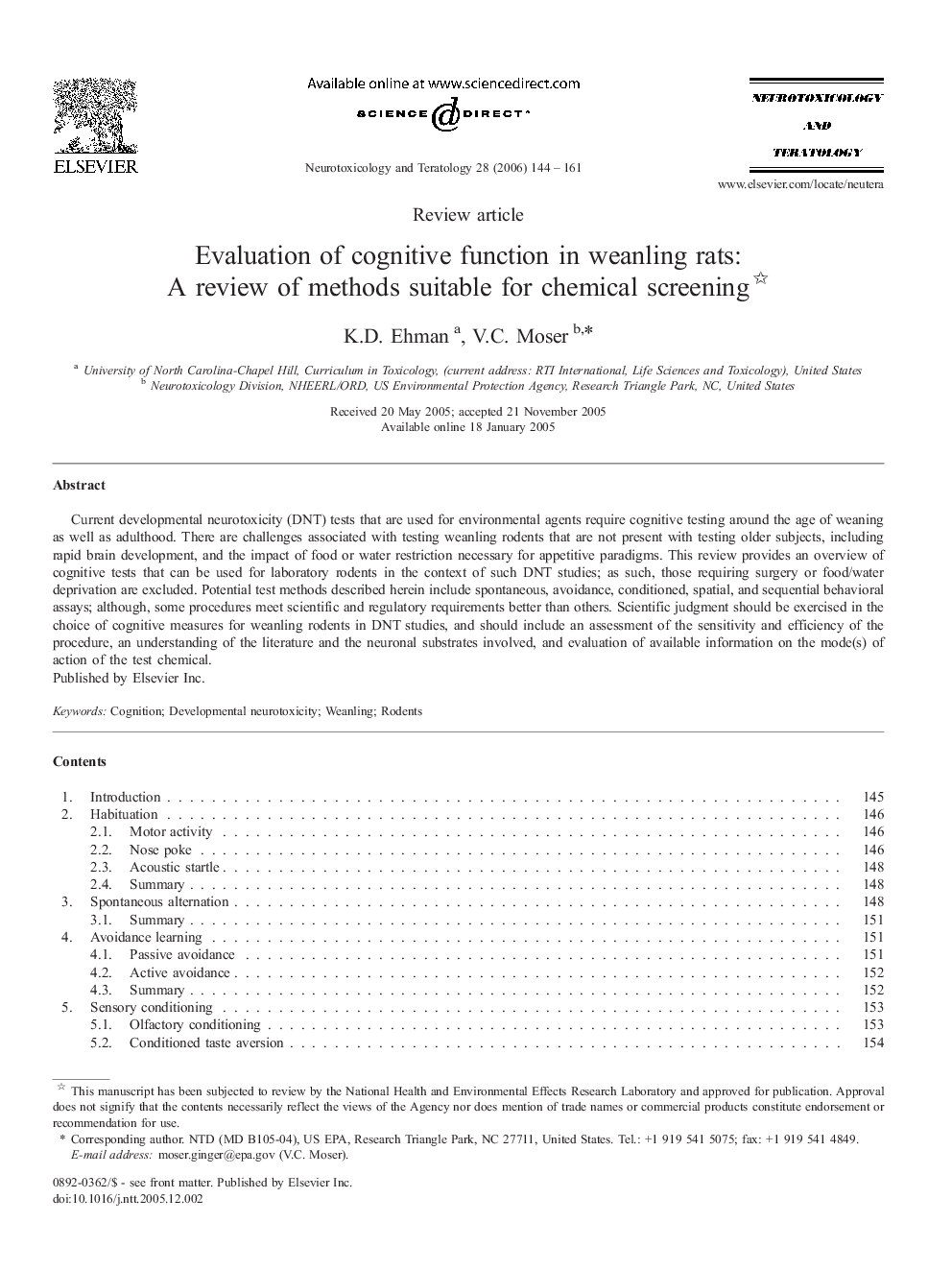| Article ID | Journal | Published Year | Pages | File Type |
|---|---|---|---|---|
| 2591901 | Neurotoxicology and Teratology | 2006 | 18 Pages |
Current developmental neurotoxicity (DNT) tests that are used for environmental agents require cognitive testing around the age of weaning as well as adulthood. There are challenges associated with testing weanling rodents that are not present with testing older subjects, including rapid brain development, and the impact of food or water restriction necessary for appetitive paradigms. This review provides an overview of cognitive tests that can be used for laboratory rodents in the context of such DNT studies; as such, those requiring surgery or food/water deprivation are excluded. Potential test methods described herein include spontaneous, avoidance, conditioned, spatial, and sequential behavioral assays; although, some procedures meet scientific and regulatory requirements better than others. Scientific judgment should be exercised in the choice of cognitive measures for weanling rodents in DNT studies, and should include an assessment of the sensitivity and efficiency of the procedure, an understanding of the literature and the neuronal substrates involved, and evaluation of available information on the mode(s) of action of the test chemical.
